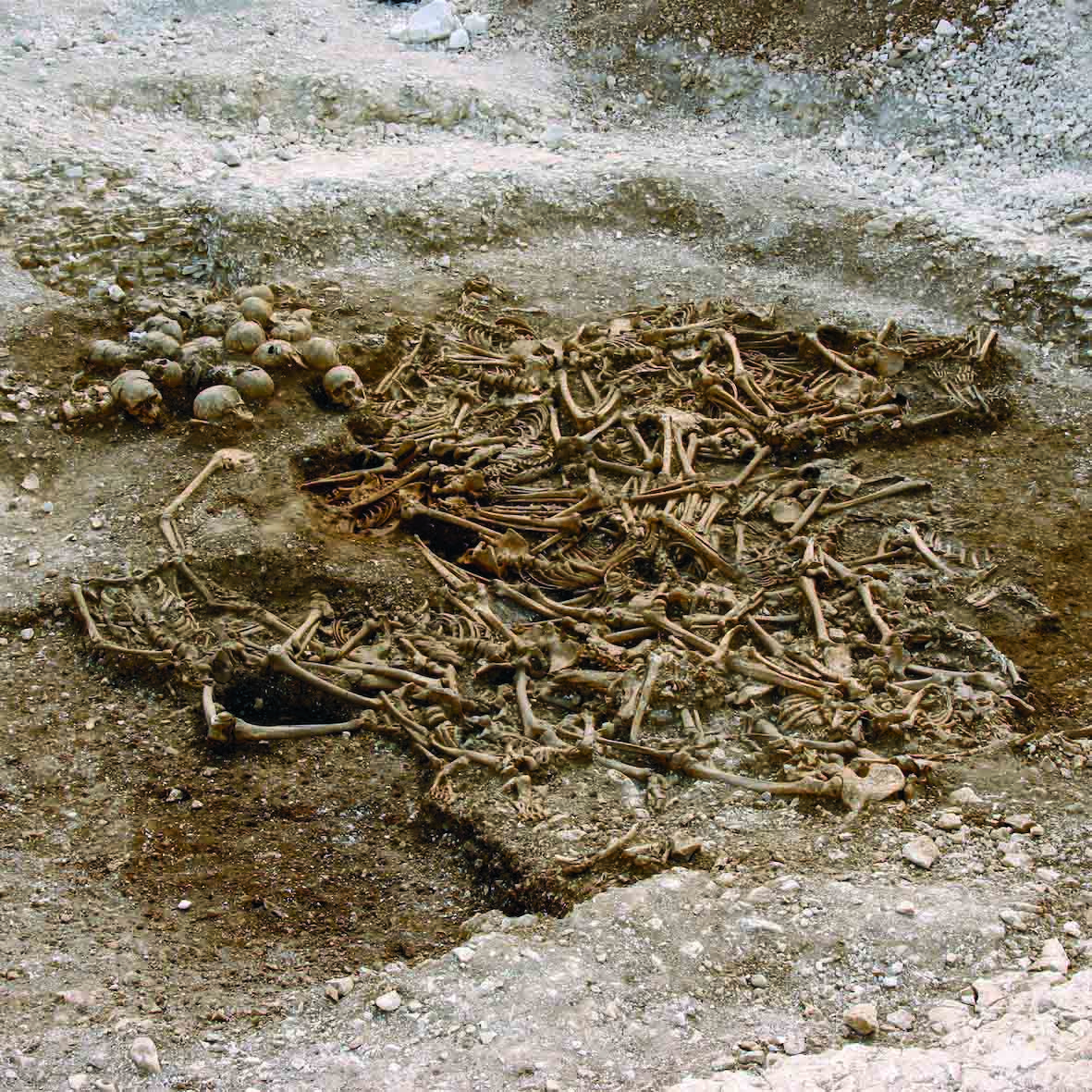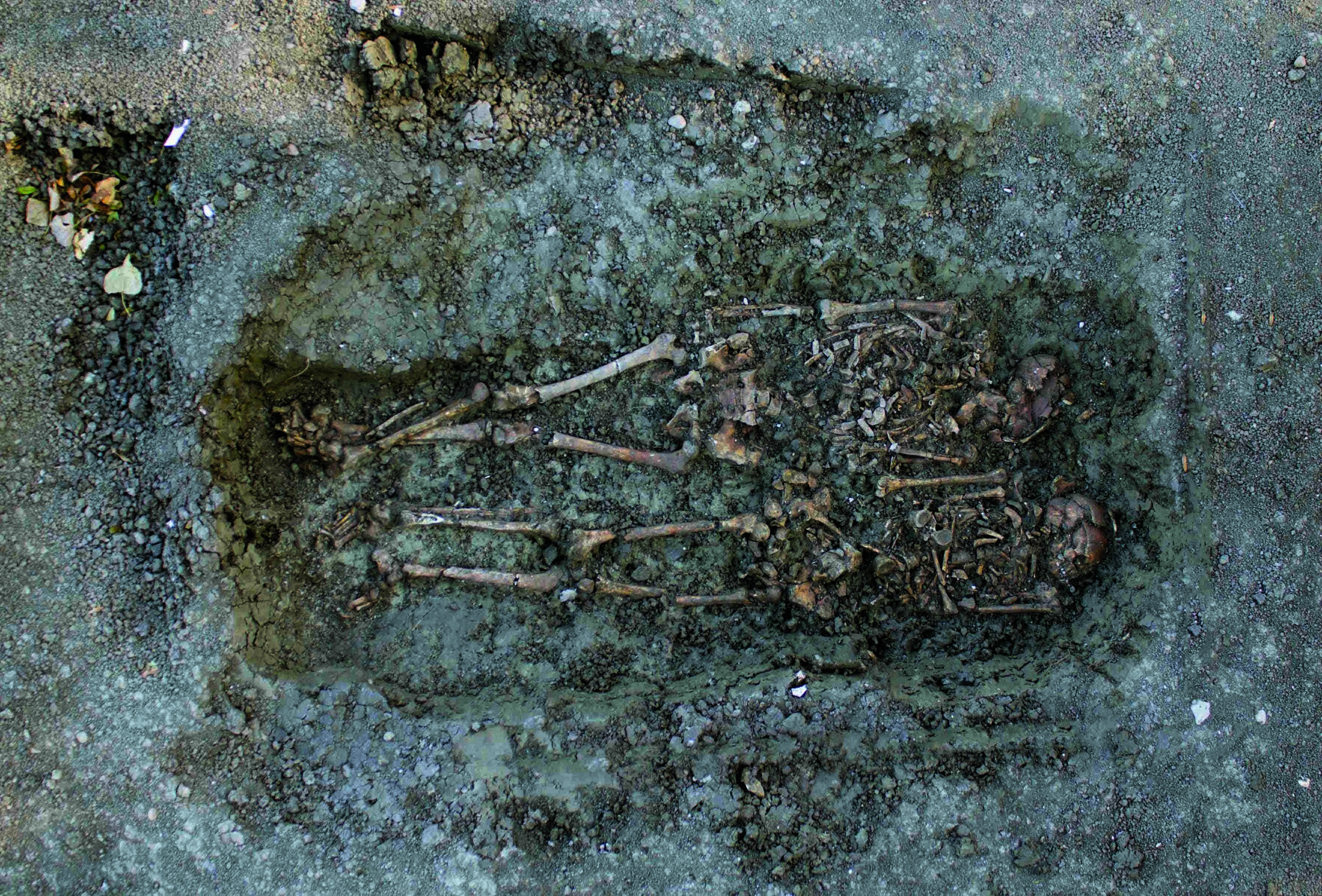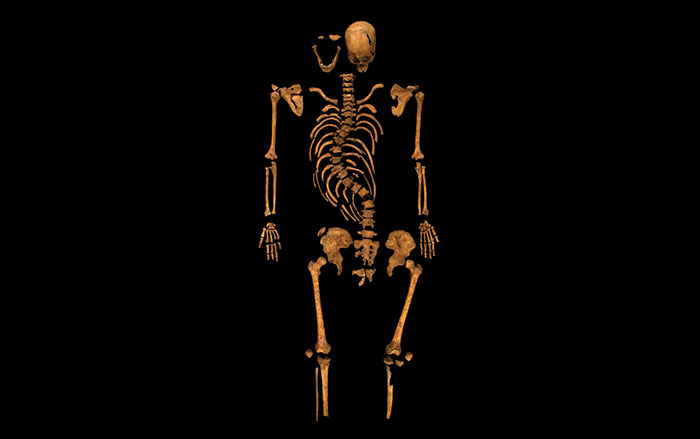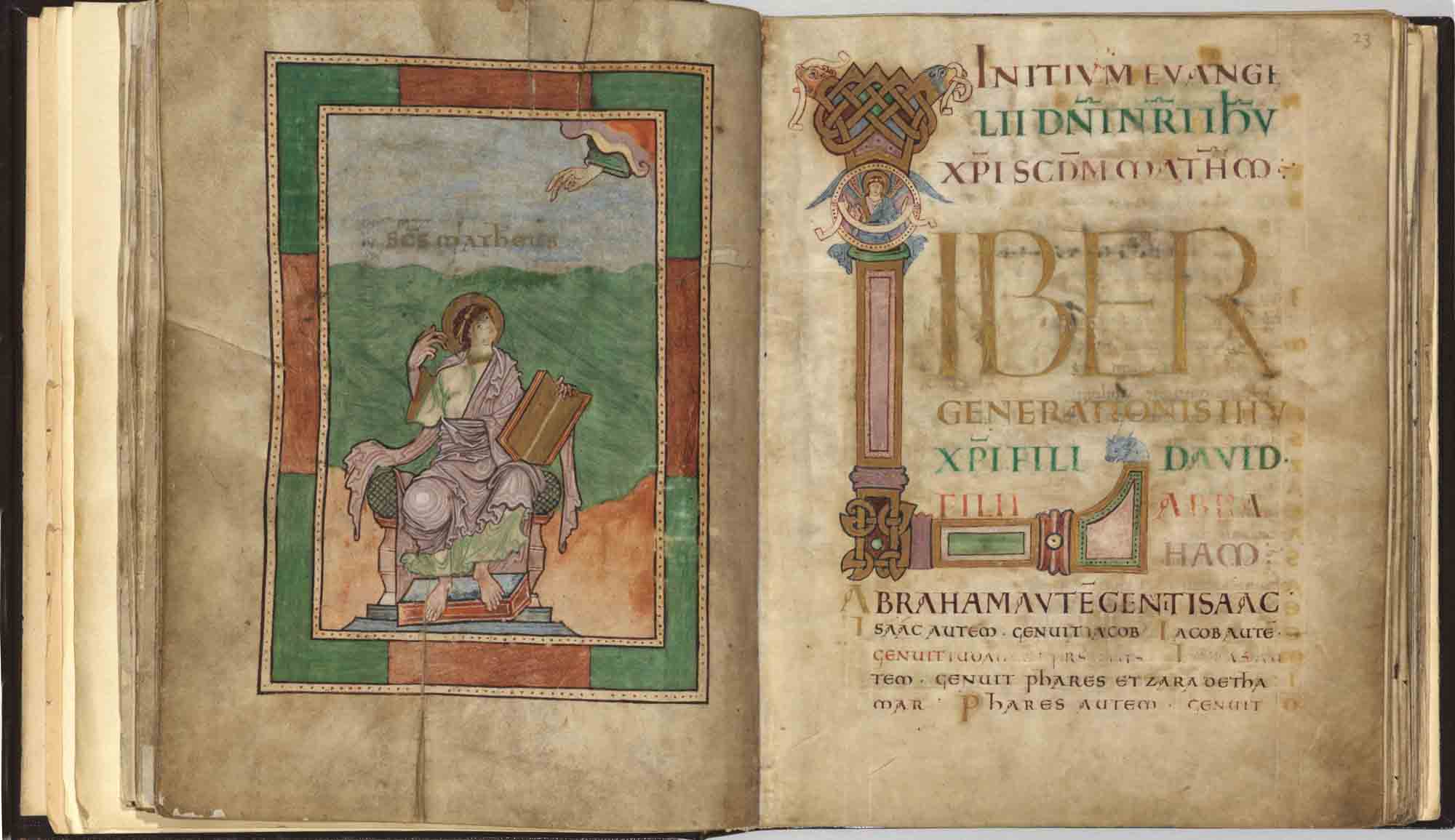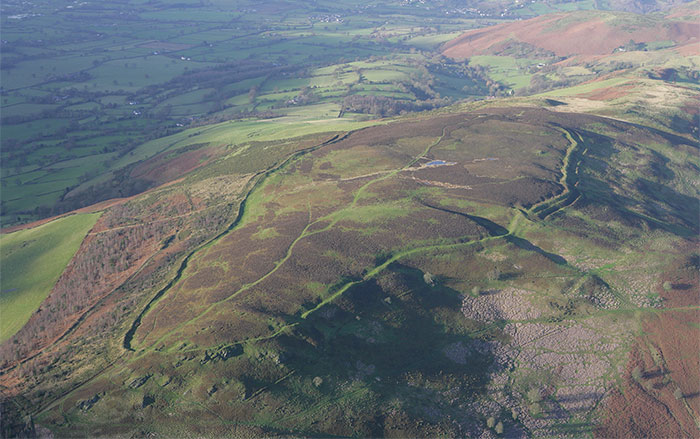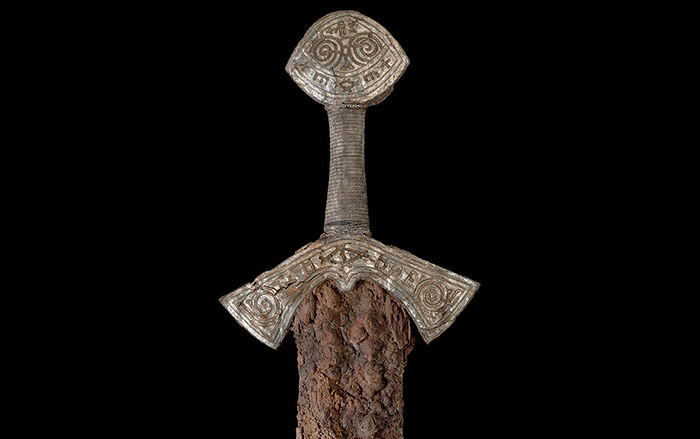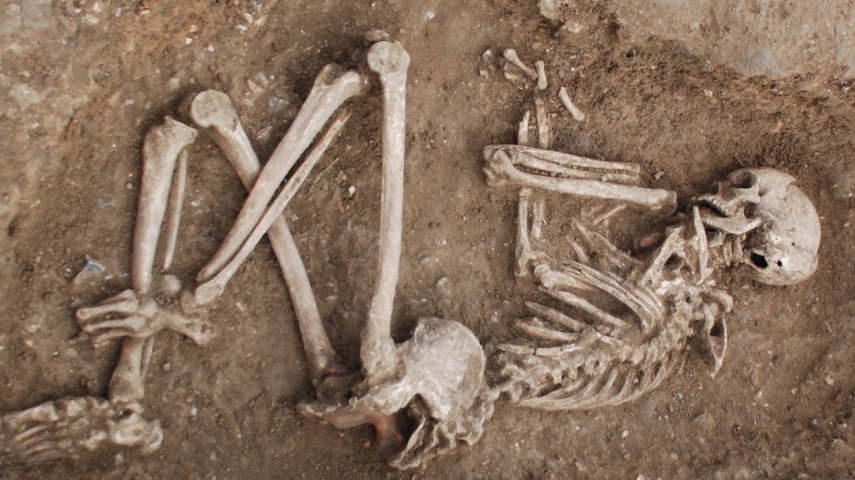
CAMBRIDGESHIRE, ENGLAND—An international team of scientists obtained whole genome sequences from ten skeletons unearthed near Cambridge. The skeletons ranged from the Iron Age, early Anglo-Saxon, and Middle Anglo-Saxon periods. The scientists then compared the ancient genomes with those from modern Europeans by looking at rare mutations. “We estimate that 38 percent of the ancestors of the English were Anglo-Saxons. This is the first direct estimate of the impact of immigration into Britain from the fifth to seventh centuries A.D. and the traces left in modern England,” Stephan Schiffels of the Wellcome Trust Sanger Institute and the Max Plank Institute said in a press release. The genetic evidence, when combined with archaeological evidence, offers more information on how Anglo-Saxon immigrants adapted to life in Britain. “Genome sequences from four individuals from a cemetery in Oakington indicated that, genetically, two were migrant Anglo-Saxons, one was a native, and one was a mixture of both. The archaeological evidence shows that these individuals were treated the same way in death, and proves they were all well integrated into the Oakington Anglo-Saxon community despite their different biological heritage,” added Duncan Sayer of the University of Central Lancashire. To read in-depth about Anglo-Saxons, go to "The Kings of Kent."


